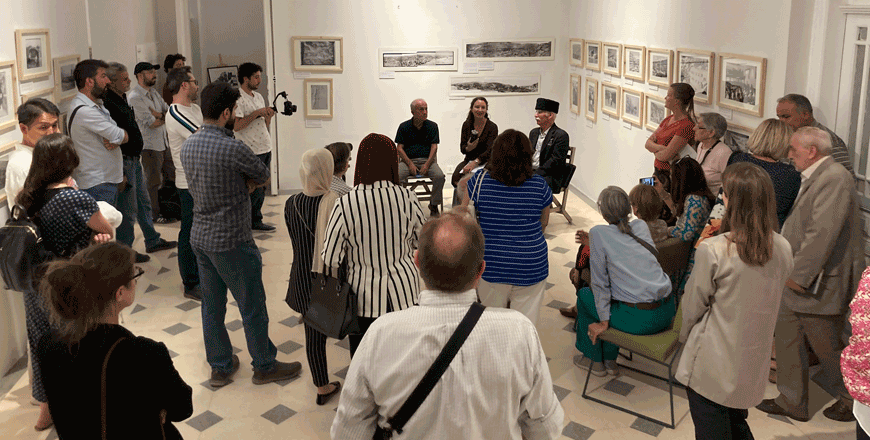You are here
‘Arab Spring sheds light on role of political parties’
By Saeb Rawashdeh - Feb 19,2017 - Last updated at Feb 19,2017
AMMAN — The events of 2011 in the Arab world shed light on the role of political parties and how their social functioning changed in the ongoing turmoil in the region, according to a group of scholars.
“The 2011 events allow us to enlarge our understanding of what is a political party,” said Xavier Guignard, a PhD candidate at Pantheon Sorbonne University in Paris, at a recent lecture titled “Rethinking political parties in the Arab World in light of the Arab Spring”.
During the event, held at the Institut Français du Proche-Orient in Amman (Ifpo) last Monday, a series of articles written by a group of 15 political scientists specialised in the Arab world were discussed in an attempt to give answers on the political implications of the Arab Spring, which started in 2011.
“Political parties are a place where politics is made as well as a perfect site for observing political changes,” explained Robin Beaumont, the second lecturer who came from École des Hautes Étudesen Sciences Sociales in Paris, where he is a PhD candidate in political studies.
For some pundits, it seemed that old political actors — “authorised opposition parties”— became irrelevant, said Beaumont, adding that on the other hand, parties remain the most stable political structures.
The two French scientists and Ifpo fellows observed that political parties have mainly been discarded as obsolete political objects, disconnected from social realities and now in competition with new forms of political mobilisation — hence the whole discourse is on the “confiscation of the Arab Spring by political parties”.
They contended that parties remain a useful lens through which sociopolitical developments can be analysed and remain to this day the most influential form of political organisation.
“Consequently, if parties are not the only drivers of the reshaping of political order, they remain unavoidable actors because of their capacity to mobilise masses,” Beaumont highlighted.
In different societies, political parties have been “deeply affected”, in their number as well as in their nature, by the post-2011 dynamics, whether returning from exile, surfacing from underground activity, or emerging out of social turmoil.
In parallel, national political landscapes have been reshaped to such an extent that parties cannot but be affected.
“Opening up the political field doesn’t always guarantee the rise of democracy in society,” Beaumont noted.
Another effect of the 2011 events on political parties is the reformulation of their roles and their regional implication.
Although Hizbollah supported political changes in Tunisia and Egypt, after the breakout of the conflict in Syria, the organisation gradually positioned itself as the political and military ally of the regime, said Guignard.
“Hizbollah, which plays along the line of the political game in Lebanon, can, at the same time, make a show of its evolution into an ‘army’ during a military parade in Syria, where it supports the sectarian violence of the pro-Assad forces,” added Guignard.
Meanwhile in Jordan, which did not experience the violence and the chaos which characterised the Arab Spring, the Syrian civil war marked the end of the alliance between Jordanian leftist groups and Islamist parties, as the former supported Assad’s regime while the latter backed different rebel groups, Guignard stated.
According to the political scientists, parties are amongst “the first actors” affected by transnational dynamics, with some being “radically reoriented” by making new alliances or combining politics with armed activity.
Parties also remain the “primary locus” where ideologies are reformulated and political doctrines are discussed, which contributes to the transformation of political practices, the scholars concluded.
Related Articles
AMMAN — The recently announced US “Deal of the Century” is not a peace plan, but “a deal made by real-estate agents”, said a French scholar
AMMAN — The French research centre in Amman (Ifpo) aims to disseminate knowledge about the Middle East to develop a culture of d
AMMAN — Despite several similarities between the political outlooks in Jordan and Morocco, Moroccan political parties have succeeded in form

















